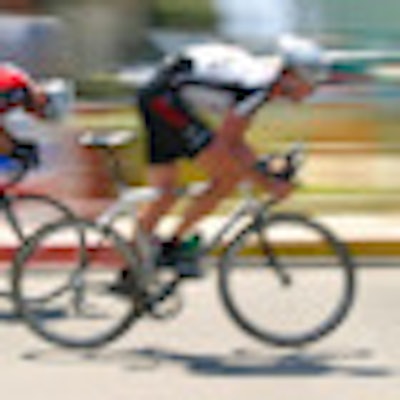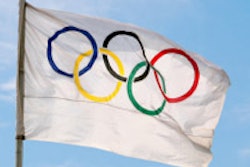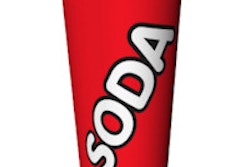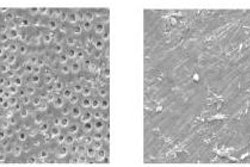
The diet of elite triathletes is consistent with a high-risk profile for caries and erosion, according to a study in the International Journal of Sports Medicine (May 17, 2011).
"Elite athletes follow demanding training regimes to achieve optimal performance," wrote researchers from the oral sciences department at the University of Otago in New Zealand. "Training incorporates strategies which coincide with risk factors for dental caries and erosion."
A high caries/erosion risk profile is reflected in the lifestyle and dietary patterns of many competitive athletes, they noted.
"Long training sessions may result in decreased salivary flow due to dehydration and mouth-breathing [and] high-energy demands are often met by frequent intake of foods containing fermentable carbohydrates and acidic sports drinks," the study authors wrote.
While there has been an emphasis in recent research on erosion related to sports drinks, a strong causal relationship has not yet been demonstrated, they added.
To determine whether sports drinks and other factors represent risk factors for dental caries and erosion in elite triathletes, the researchers distributed questionnaires regarding training, diet, and oral health to a sample of elite triathletes in New Zealand. The survey was designed to assess risk factors for caries and erosion and contained five key sections:
- General
- Sporting
- Diet
- Oral health
- Awareness of sport and oral health
The respondents were also queried about their training and competing.
In addition, a random sample of 10 athletes from the Dunedin triathlon club was selected to undergo a clinical oral exam. The exams were conducted at the University of Otago School of Dentistry and included radiographs, periodontal health assessment, and the identification of dental caries using DMFT (decayed, missing, filled teeth) index.
The individual risk for developing caries was assessed using the dental schools' caries risk assessment format.
Study findings
A total of 31 triathletes (15 males, 16 females, mean age 24.2 years) responded to the questionnaire (while the study authors acknowledge the small sample size, they also noted that the total population of elite triathletes is small as well). The number of years involved in a particular sport varied, with 35.5% having competed for two to three years and 35.5% for five or more years. The total time spent training ranged from 11 to 38 hours per week, with the average training time being 20.6 hours. Among the respondents, the most training time was spent cycling.
The researchers found that all respondents consumed water while training, and 84% also consumed sports drinks. Sports drinks were consumed by 15% of respondents during five or more sessions per week, and 16% reported using sports drinks during the day when not training. When describing the pattern of drink consumption for both water and sports drinks, 48% reported drinking "with little sips often, from a bottle."
The pattern of consumption offers important insight into the actual risk for caries and erosion in the mouth, the researchers noted. "Almost half of the respondents reported the high-frequency, high-risk consumption pattern of 'little sips often, from a bottle' for both sports drinks and water," they wrote.
In addition, food consumed during training included a variety of carbohydrate-rich products consumed by 94% of athletes, the study authors found. The majority (88%) ate on five or more occasions during training. Those who consumed food during training were more likely to eat during cycling, with 58% eating only during this discipline.
"A previous study found significantly greater caries/erosion incidence in cyclists compared with swimmers," the researchers noted (British Journal of Sports Medicine, March 1997, Vol. 31:1, pp. 28-30). "Observations in the current study suggest that the pattern of consumption of risk foods and drinks may be a contributing factor to the higher caries incidence in cyclists."
All study respondents reported brushing their teeth at least once a day, 74% brushed twice daily. Most reported regular dental visits, with 61% attending at least annually and 37% going twice a year. Among the 10 who underwent a clinical exam as part of the study, the majority had good periodontal health, but all were clinically assessed as having high risk for caries.
While it is difficult to establish a causal relationship between athletes' behaviors and poor oral health, these findings suggest that elite triathletes exhibit a general high-risk profile for dental caries and erosion, the authors noted. Dentists treating athletes should carry out regular caries risk assessments, and trainers should be made aware of the importance of good oral health.
"Having good oral health is critical as unexpected dental infection may ruin months, if not years, of training for a particular event," the researchers concluded. "This study highlights to the athletes, to their dentists, and to their coaches and administrators the importance of understanding the impact of diet and consumption patterns on oral health and the need to include regular dental care for athletes, plus dental professionals in the training team."



















